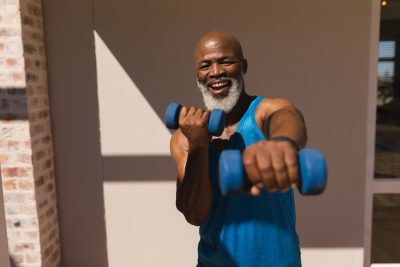Creating lasting change in health and fitness requires more than short-term solutions or fad diets. Expert trainers emphasize that sustainable transformation comes through developing consistent, manageable habits that fit into your daily routine. Understanding this fundamental principle helps create realistic expectations and achievable goals.
Morning workout strategies
Starting your day with exercise offers multiple benefits beyond physical fitness. Preparing workout clothes the night before and establishing a morning routine removes common barriers to exercise. This early commitment sets a positive tone for the day while ensuring daily movement becomes a priority rather than an afterthought.
Understanding portion control
Mastering portion sizes plays a crucial role in maintaining healthy eating habits. Rather than strict calorie counting, learning to recognize appropriate serving sizes helps develop intuitive eating patterns. This approach allows for enjoyment of various foods while maintaining control over overall intake.
Sleep’s impact on fitness
Quality sleep significantly influences both exercise performance and weight management. Adequate rest supports muscle recovery, hormonal balance, and energy levels. Creating consistent sleep patterns helps optimize workout results while supporting overall health goals.
Embracing imperfection
Fitness journeys rarely follow a straight path. Understanding that setbacks and challenges form natural parts of the process helps maintain long-term motivation. Rather than seeking perfection, focus on progress and consistency over time leads to sustainable results.
Finding enjoyable activities
Exercise effectiveness increases dramatically when you genuinely enjoy the activity. Exploring different sports and workout styles helps identify personally appealing options. This enjoyment factor transforms exercise from obligation into anticipated activity, supporting long-term adherence.
Consistent movement patterns
Establishing daily movement goals, such as thirty minutes of activity or three miles of distance, creates measurable targets. This consistency builds momentum while allowing flexibility in exercise choice. Regular movement becomes habitual rather than exceptional.
Moving beyond fad diets
Sustainable health improvements require lifestyle changes rather than temporary fixes. Understanding that quick-fix diets often lead to frustration helps redirect focus toward developing lasting healthy habits. This approach supports both immediate goals and long-term wellbeing.
Strength training benefits
While cardiovascular exercise offers important benefits, incorporating strength training provides crucial advantages for body composition and metabolism. Building lean muscle through resistance training supports long-term weight management while improving functional fitness.
Leveraging social support
Modern social media platforms offer unprecedented access to fitness communities and expert guidance. Utilizing these resources for accountability and inspiration helps maintain motivation while providing valuable information and support networks.
Nutrition fundamentals
Understanding the relationship between food choices and body composition helps inform daily decisions. Focusing on fiber-rich foods and lean proteins supports muscle development while maintaining energy levels throughout the day. This knowledge enables informed choices rather than restrictive rules.
Creating sustainable routines
Developing routines that accommodate both fitness goals and daily responsibilities increases long-term success probability. This balance ensures that healthy habits enhance rather than compete with other life aspects.
Progress monitoring
Tracking progress through various metrics beyond scale weight provides more complete success measures. This might include energy levels, clothing fit, strength gains, or improved endurance. Multiple measurement methods offer better progress understanding.
Adaptation strategies
Recognizing that different life phases require different approaches helps maintain consistency through changing circumstances. Flexibility in workout timing, duration, and style allows continued progress despite schedule variations. Life transitions, whether career changes, family obligations, or health challenges, demand adaptable fitness strategies. Understanding how to modify workouts while maintaining their effectiveness ensures continued progress even during major life adjustments. This adaptability might involve switching from evening gym sessions to morning home workouts, replacing long training sessions with shorter high-intensity alternatives, or incorporating new activities that better suit current circumstances.
Long-term perspective
Understanding that sustainable transformation requires time and patience helps prevent discouragement during plateau periods. This perspective supports consistent effort while reducing pressure for immediate results. Sustainable fitness journeys often span months or years rather than weeks, requiring steady commitment and realistic expectations. Recognizing that progress often occurs in cycles, with periods of rapid improvement followed by plateaus, helps maintain motivation during challenging phases. This long-term view encourages focus on building lasting habits rather than seeking quick fixes, ultimately leading to more sustainable results and improved overall health outcomes. Success in fitness becomes measured not by daily fluctuations but by consistent progress over extended periods, allowing for natural variations while maintaining forward momentum.













